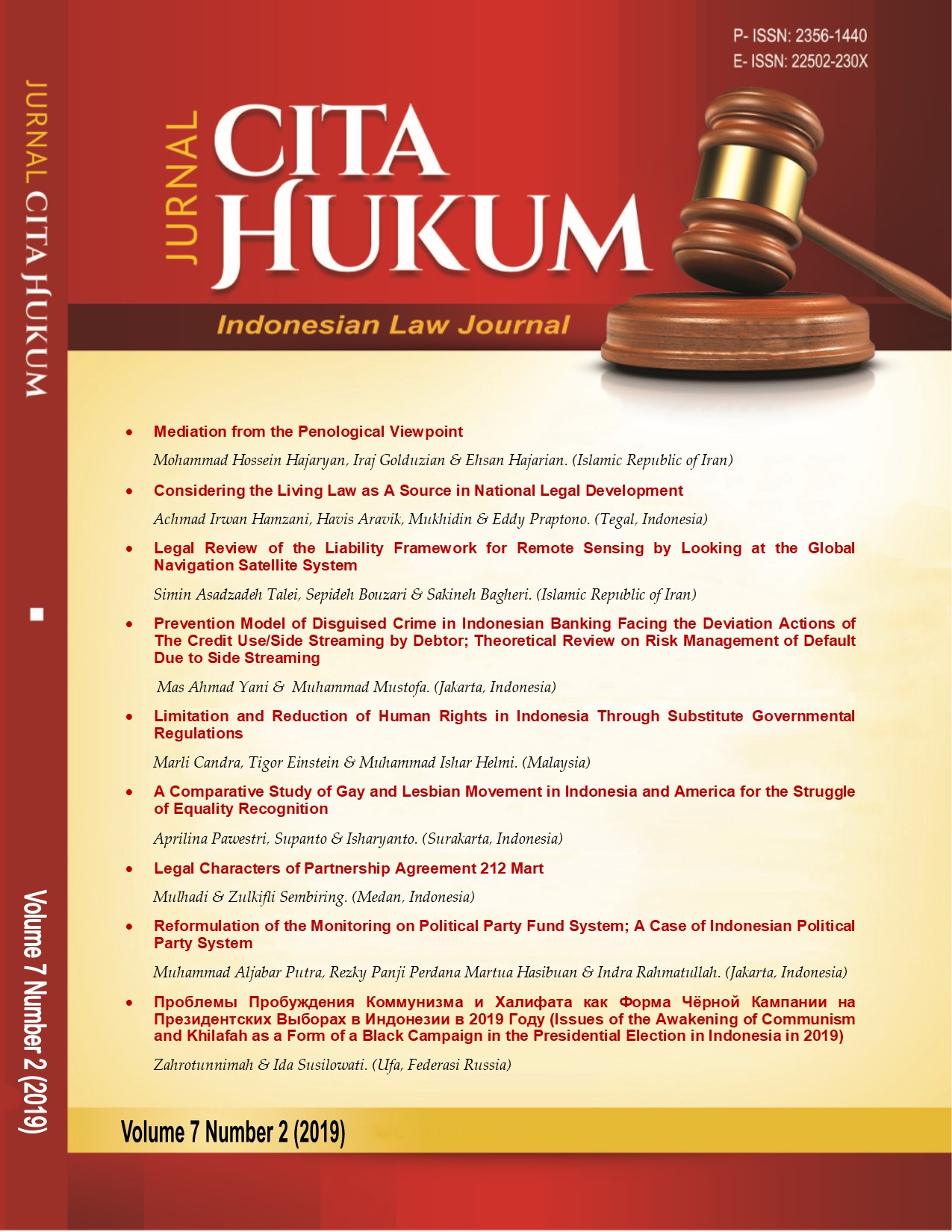Legal and Administrative Strategies for Addressing Military Administrative Offences within the Personnel of the State Border Guard Service of Ukraine
DOI:
https://doi.org/10.15408/jch.v13i2.46338Keywords:
Military Administrative Offences; Administrative and Legal Prevention; Determinants of Illegal Activity; State Border Guard Service of UkraineAbstract
This study examines the role of the State Border Guard Service of Ukraine in preventing administrative military violations during the ongoing state of martial law. The research emphasizes the growing importance of optimizing the efficiency and functionality of border control agencies amid heightened security challenges. Using a qualitative research method with a juridical-normative and comparative approach, the study explores legal frameworks, institutional practices, and foreign experiences to identify best practices for Ukraine. Using a literature review, legal documents, government decrees, and international conventions on border protection are systematically reviewed to determine the legal basis and administrative procedures governing preventive measures. Meanwhile, the comparative qualitative analysis involves examining case studies from other countries that have implemented effective systems for preventing administrative offenses in border services. In addition, qualitative interviews with border officials, legal experts, and defense policymakers were conducted to gain practical insights into the challenges faced in enforcing administrative discipline under martial law. The findings reveal that while Ukraine has a solid legal foundation for border protection, gaps remain in coordination, documentation, and personnel training. Drawing on both domestic and international perspectives, the study identifies adaptable mechanisms to enhance the efficiency of combating administrative and military offenses. Ultimately, this research offers policy recommendations to improve preventive measures, strengthen legal accountability, and ensure that Ukraine’s border security system remains resilient, transparent, and compliant with international norms during periods of military emergency.
References
Baranov, S., & Rybachenko. S. (2022). Current issues of implementing the prevention of administrative offences by units of the State Border Service. South Ukrainian Law Journal. Volume 1. Number 2, 60-65. DOI: 10.32850/sulj.2022.1-2.11
Bratko, A., & Mysyk, A. (2021). The role of the state border service of Ukraine in the system of military security in the conditions of hybrid war. Honor and Law. Volume 1. Number 76. DOI: 10.33405/2078-7480/2021/1/76/229210
Burlaka, P. (2019). Violation of the rules of performing border service: Distinguishing criminal action from administrative offence. Prosecutor’s Office Bulletin. Volume 8. Retrieved from https://vpzhr.gp.gov.ua/ua/guidance_vpzhr.html?_m=publications&_t=rec&id=258161
Center for the Study of Democracy (2012). Anti-corruption measures in EU border control. Retrieved from https://www.frontex.europa.eu/assets/Publications/Research/AntiCorruption_Measures_in_EU_Border_Control.pdf
Cenzor.Net. (2024). SBGS: 18 border guards detained for corruption. Retrieved from https://censor.net/en/news/3524100/corruption-in-the-sbgs-18-border-guards-detained-in-2024
Collins, P. (2019). The Military as a Separate Society: Consequences for Discipline in the United States and Australia. Lexington Books.
Departments of the Army (2013). Armed Forces Disciplinary Control Boards and Off-Installation Liaison and Operations. CreateSpace Independent Publishing Platform.
Koropatnyk, I., Mykytiuk, M., Pavliuk, O., Petkov, S. (Eds.). (2023). Military administrative offenses under the legislation of Ukraine. General concepts, administrative and legal characteristics, regulatory and legal support, features of law enforcement during martial law, current judicial practice. Kyiv: Publishing House “Professional”.
McLaughlin, R. (2016). Military justice in the modern age. Cambridge University Press.
Ministry of Internal Affairs of Ukraine. (2013). On approval of the Instructions for the preparation of materials on administrative offence cases by officials of the State Border Guard Service of Ukraine: Order of the Ministry of Internal Affairs of Ukraine dated 18.09.2013 No. 898. https://zakon.rada.gov.ua/laws/show/z1729-13#Text
Newburn, T. (1999). Understanding and Preventing Police Corruption: Lessons from the Literature. Police Research Series Paper No. 110. London: Home Office. Retrieved from http://webarchive.nationalarchives.gov.uk/20110218135832/http://rds.homeoffice.gov.uk/rds/prgpdfs/fprs110.pdf
Petkov, S., Barikova, A., Kopotun, I., Bulhakova, O., & Gubariev, S. (2023). The mechanism for the prevention of military administrative offences under martial law. Amazonia Investiga. Volume 12. Number 63, 243-253. DOI: 10.34069/AI/2023.63.03.23
Podoliaka, A., & Domin, Y. (2020). Drawing up reports on military and administrative offenses by military prosecutors: specifics and powers. VISEGRAD. Volume 5, 291-296. Retrieved from https://journal-vjhr.sk/wp-content/uploads/2021/11/VJHR-521-Last.pdf
Punch, M. (2000). Police corruption and its prevention. European Journal on Criminal Policy and Research. Volume 8, 301-324. DOI: 10.1023/A:1008777013115
Suber, D. L. (2023). Corruption and Bribery at the Border: Strategies of Survival and Adaptation between People Smugglers and Border Enforcement. The ANNALS of the American Academy of Political and Social Science. Volume 709. Number 1, 65-85. DOI: 10.1177/00027162241245504
van de Bunt, H. (2004). Police Corruption in the Netherlands. In: M. Amir, & S. Einstein (eds), Police Corruption: Challenges for Developed Countries. Comparative Issues and Commissions of Inquiry. London: The Office of International Criminal Justice, Inc.
Vitvitsky, S. S., Veselov, M. Yu., Nesterenko, O. M., Eprintsev, P. S. (2024). Military administrative offenses: scientific and practical commentary. Kharkiv: Pravo.
Downloads
Published
Issue
Section
License
Copyright (c) 2025 Yaroslav Kushnir

This work is licensed under a Creative Commons Attribution-ShareAlike 4.0 International License.












